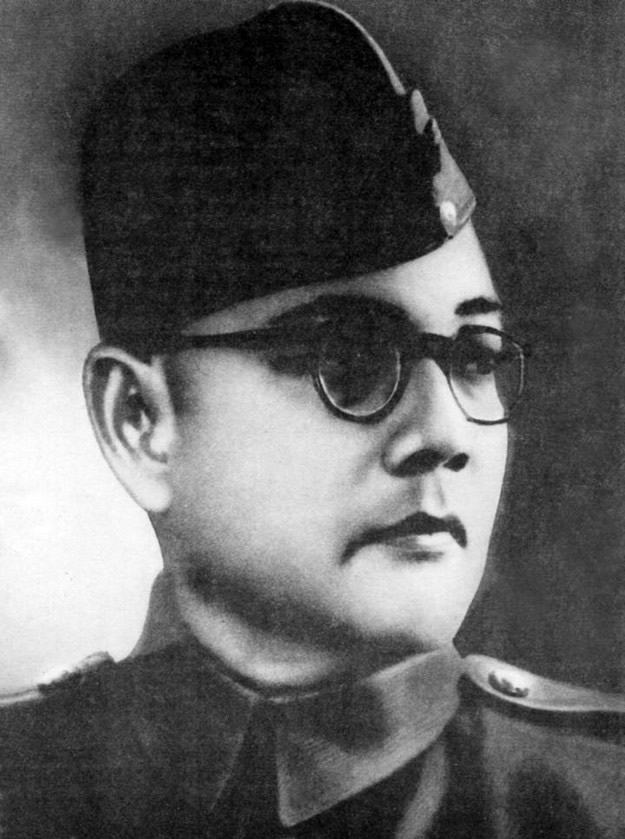 |
| Subhas Chandra Bose |
Subhas Chandra Bose abandoned an intended career in the Indian civil service to support Mohandas K. Gandhi and the Indian National Congress (INC) in the cause of Indian independence from Great Britain. However, he later found Gandhi's nonviolent movement too moderate, attacked Gandhi for negotiating with the British authorities, and organized a Socialist Independence of India League in 1928.
He also became a labor leader, organized strikes, and was elected president of the All India Trade Union Congress (1929–31). When Gandhi suspended his satyagraha (truth, force, nonviolent protest) campaign against the British in 1933, Bose and the left-wing members of the INC called for Gandhi's suspension from the organization and its reorganization.
A showdown between Gandhi and Bose in 1937 resulted in the first contested election for president of the INC, which Bose won in 1938. He became an open admirer of Adolf Hitler and took on the title Netaji, which means leader in Hindi, in emulation of the German Nazi leader.
  |
His policies so severely fractured the INC that it could not function, compelling him to resign. He broke off relations with the INC and Gandhi as a result and formed the Forward Bloc Party. Whereas Gandhi and the INC advocated noncooperation with the British government when World War II broke out, Bose sponsored terrorism, sabotage, and assassination.
His party was banned, and he fled India, arriving in Berlin via Afghanistan and the Soviet Union. He was welcomed by Hitler, who provided him with a radio facility to broadcast anti-British propaganda to India.
Bose arrived in Japan in mid-1943 in a German Uboat. He proceeded to Japanese-occupied Malaya and helped organize the "Indian National Army," which consisted of 40,000 soldiers from among the 45,000 Indian prisoners of war captured in Malaya and Singapore.
However, command and control of that army remained in Japanese hands. In October 1943 Bose announced the creation of a Provisional Government of Free India and assumed the titles of head of state, prime minister, and minister of war and foreign affairs.
The people he supposedly controlled were the 2 million ethnic Indians who were living in Japanese-occupied Malaya and Singapore. However, the Japanese initially put Bose on the Andaman Islands. In November 1943 Bose and other Japanese puppets met in Tokyo in the Greater East Asia Conference.
This conference marked the high point of Japan's "New Order" in Asia and the Greater East Asia CoProsperity Sphere it created and controlled. Bose's "government" was moved to Rangoon in Burma in 1944 as the Japanese-controlled Indian army advanced across the Indian border. It was turned back and surrendered in Rangoon in May 1945.
Bose escaped with his Japanese patrons, fleeing to Indochina, and when Japanese forces collapsed there he left Saigon for Taiwan on the last Japanese plane, which crashed on landing. Captured officers who served under Bose were tried and convicted but were given suspended sentences.